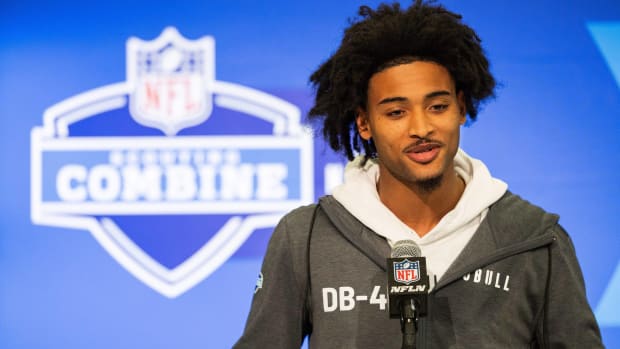Playing A lot of Players is a Recipe for Success at Clemson

CLEMSON — The Clemson Tigers have had a history of playing as many players as possible in games, opting to increase their depth rather than running up the score, during their recent, soon-to-be, five-year run to the College Football Playoff.
In fact last season, the Tigers averaged playing more than 20 players per game than runner-up Alabama.
The reason for the Tigers' dedication to playing players is simple: they put the team before stats.
“I can't speak to the cultures at other places but you see a lot on the internet and on Twitter,” co-offensive coordinator Jeff Scott said. “There is a lot of self-promotion and people worrying a lot about their own stats but here it truly is about the program first, team first, getting the win. Part of that is in recruiting. We make sure when we're recruiting guys that understand when they're coming in that it's about the team more than any individual.
"We're here to win games and develop a roster. I lost count of how many games we've played in the last three or four years, but if you play in the Playoffs and have those long runs, the season gets long and we want to be at our best if we earn that opportunity. Part of that is to developing your roster and rolling a lot of guys.”
The decision of when to pull the starters and let the backups play does not fall to a graduate assistant coach holding a clipboard, or even a paid assistant coach. In fact the decision of when to make substitutions comes from the very top of the food chain.
"That's coach (Dabo) Swinney's decision," co-offensive coordinator Tony Elliott said. "He's in control of the personnel. When he feels like the game is under control and the guys have done what he's looking for out of them, then he'll tell us we need to get some other guys in the game. Up until that point, we're just coaching our tails off."
The reason that Swinney wants control on who plays and when they play is simple, he wants to make sure that everyone who has earned the right to play has the opportunity to step on the field and get their name in the record books.
“We’ve got a lot of guys who can say they played for the Tigers, and nobody can take that away from them,” he said. “They were rewarded for their hard work and had a chance to go out and play. That was pretty special.”
The Tigers are not willy-nilly about when to begin their substitutions. Sometimes a starter is pulled before the half, sometimes it is in the third quarter or sometimes not at all.
The decisions, while coming from Swinney, are all well thought out and have a plan behind them.
"Once we get in some of those situations, we change our play-calling a little bit. We don't run our quarterback as much," co-offensive coordinator Jeff Scott said. "We kind of protect a lot of it. But it's a fine balance, right? You want these guys to get some work. If you're not careful they play two quarters all year, and then you get into the postseason and you're playing a four-quarter game. We want to get enough work but also have that right balance.
"And we have been on the same page as a staff on the headsets when we get into those situations, OK we are going to go one more drive and then just kind of be careful with some our play calls."





